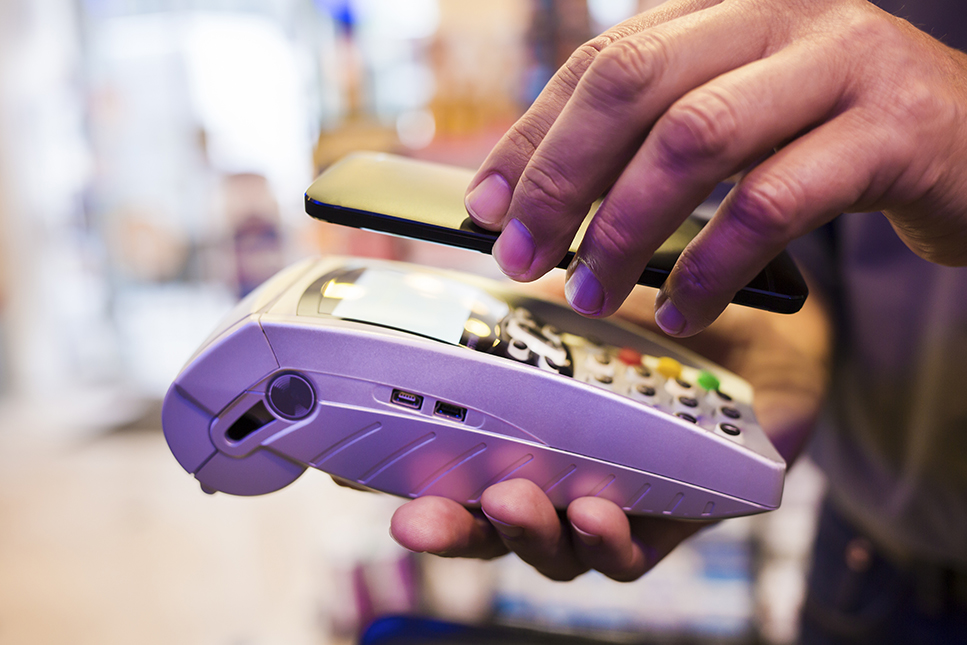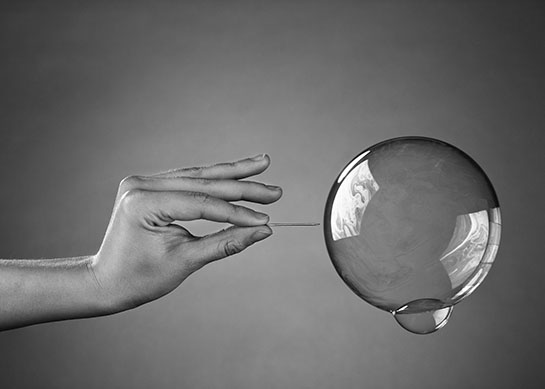Privacy is the New Black: How a breakdown in trust and privacy will shape the future of insights (Part I)
By Greg Heist, Chief Innovation Officer, Gongos, Inc.
It’s been taken for granted, increasingly opted out of, and suddenly, this thing we call privacy is becoming very public.
This May, IIR’s Future of Consumer Intelligence will feature not one, but two, keynotes on privacy and how it relates to the lifeblood of our discipline: data collection. And in September, ESOMAR’s Congress speakers will address “what inspires trust?” as one of its tracks. Clearly, these issues of privacy and trust are of global interest for our profession, and all the more reason for us to pay close attention to them.
Since the very foundation of Gongos’ innovation strategy is to identify how societal and technological trends stand to shape the future, I thought it worthwhile to begin our own discussion on privacy’s impact on our discipline.
The “Peak Privacy” Assumption
 As an industry, we’ve become cavalier and perhaps a bit complacent about the fundamental assumption that consumers are willing to give up a lot of privacy for very little money. We act under a theory of “peak privacy” – banking on the fact that consumers will allow us to passively track where they are, what apps they are using, and where they are surfing on the Internet. Indeed the future of passive data collection in marketing research is predicated on this premise.
As an industry, we’ve become cavalier and perhaps a bit complacent about the fundamental assumption that consumers are willing to give up a lot of privacy for very little money. We act under a theory of “peak privacy” – banking on the fact that consumers will allow us to passively track where they are, what apps they are using, and where they are surfing on the Internet. Indeed the future of passive data collection in marketing research is predicated on this premise.
A Perfect Storm: Privacy and Trust
Technology is truly a double-edged sword. While the Internet and smartphones have granted us unlimited access to information, they have also challenged traditional notions of confidentiality. Once-private conversations and activities are now part of our permanent digital footprint, accessible to government and corporations alike.
Ironically, this access to information is also feeding a growing skepticism and mistrust in the carefully crafted image of these established institutions.
Let’s look at some recent developments.
A January 2014 USA Today poll showed that, for the first time ever, a majority of Americans are opposed to the National Security Agency’s (NSA) activities related to electronic communication surveillance. This incident runs parallel to the steady decline of overall trust in government and corporations. Pew Research shows that only 19% of Americans trust the US government, compared to 60% at the start of the 21st Century. And in the past five years, confidence in large institutions in much of the developed world has been declining.
At the same time, President Obama’s January speech brought this closer to home. He widened the context of this debate when he made the connection between government data collection and private sector data collection:
“…there was a recognition by all who participated in these reviews that the challenges to our privacy do not come from government alone. Corporations of all shapes and sizes track what you buy, store and analyze our data, and use it for commercial purposes; that’s how those targeted ads pop up on your computer or smartphone.”
The question becomes, if the public is uncomfortable with government’s collection of data in part because of their mistrust, how long will it be before consumers think twice about giving up their personal data to corporations they don’t trust, either?
What if the Privacy Bubble Pops for Researchers?
This cultural backdrop represents a challenge to the evolution of our industry. In our quest to get at the irrational dimension of consumer behavior, passive data collection holds great promise.
Not surprisingly then, the “smart money” is chasing companies that are pioneering new forms of passive behavioral and biometric data collection technologies. These investments are reflective of an industry that continues to see privacy as an inexhaustible—and inexpensive—commodity. I recall one conference presenter gleefully sharing his calculation that a typical consumer was willing to give up their privacy for only 39 bucks.
In our haste to capitalize on this tantalizing opportunity, we’ve collectively loaded up the bandwagon without giving thought to the possibility that the wheels could unexpectedly fall off.
Personally, this breathless enthusiasm causes my contrarian warning bells to go off. It makes me wonder what would happen if the privacy bubble pops. What will become of the brave new world of consumer insights if its foundation develops an unexpected crack in it?
Think about the following scenarios:
- What if consumers place increasingly significant value on their privacy and start demanding compensation much higher than the going rate of $39?
- What if people begin refusing to opt into privacy-compromising research activities?
- What if consumers lose trust in the “independence” of market research data?
- What if people question where their Google, Facebook and Yahoo! content will end up and begin censoring what they say, or turn to other services that provide greater anonymity?
Any combination of these scenarios will dramatically alter the value proposition of an industry that counts on the free flow of consumer data. Increasingly non-representative, highly-paid consumers would be a recipe for disaster.
Of course, we can argue that a privacy backlash is much less likely than a continued lackadaisical attitude when it comes to privacy (to wit: think about how many location-based permissions you’ve given to app providers in the past month).
At the same time, the so-called NSA breach and ensuing public reaction demonstrated that things can change on a dime. As an industry, let’s view this as a cautionary tale worthy of serious consideration. That way, we won’t wind up like home buyers in 2006 that never believed their greatest investment could turn their world upside down.
In light of the foregoing, how do we factor this “black swan” into our thinking? What can we do as an industry to build trust in an increasingly jaded culture? Stay tuned for some thought-starters on these topics.

